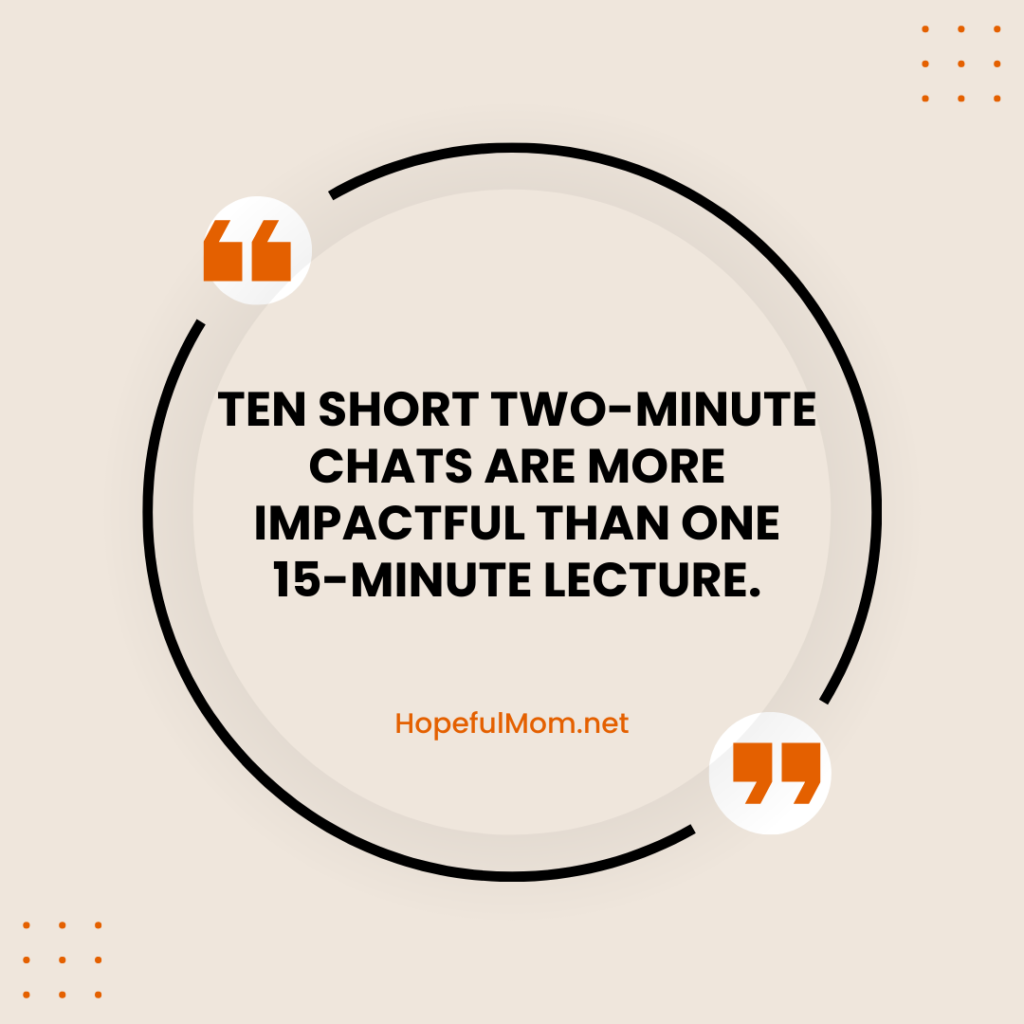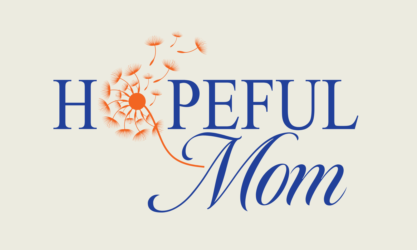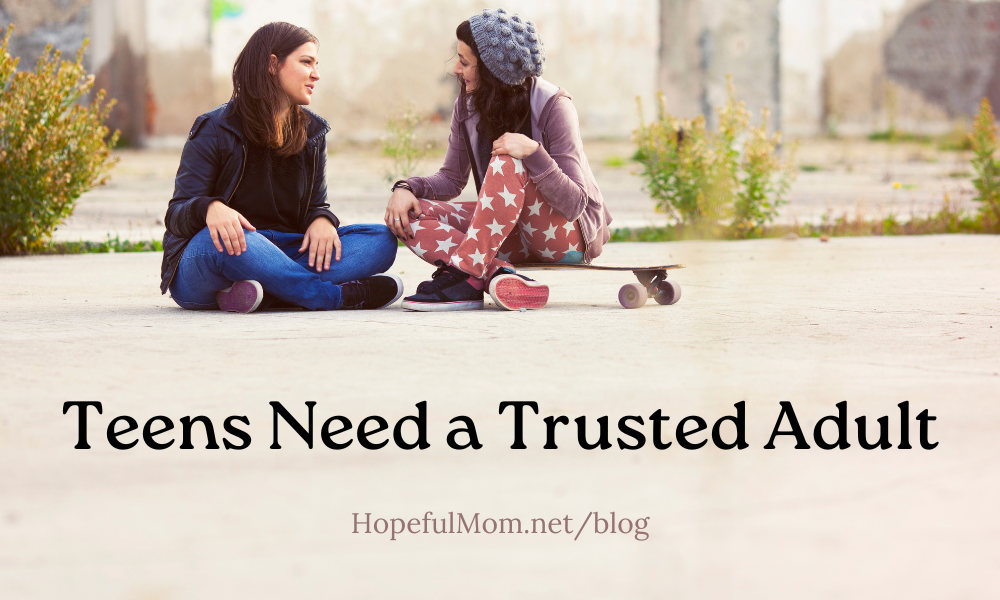“I don’t want to talk with my parents because they always give you a whole speech.”
Last month I attended a three-day adolescent pregnancy prevention conference. During one session, we heard a panel of five teens talk about their personal experiences with risk avoidance/prevention programs at their schools.
I can’t speak for every program throughout the states, only the one my employer uses. When my colleagues and I go to schools, one of our goals is to help students understand the long-term effects of their decisions. We use fact-based evidence and interactive activities to demonstrate potential outcomes of drugs, alcohol, violence, vaping, and sexual activity. We also talk about healthy choices and how those affect their future. I assume most programs and facilitators have the students’ best interest in mind and do their best to guide students toward a healthy future.
During this session, one question the moderator of the teen panel asked was, “When talking about these subjects (sex and sexual activity), would you rather speak with your parents or the facilitator?” The question was asking if the teens would rather talk with their parents or a trusted adult about these uncomfortable topics? I found their answers insightful. Granted, there were only five teen panelists, but I think their answers represent a good percentage of teens, so it’s worth repeating them here for your benefit.
Let’s look at the answers one-by-one.
“I don’t want to talk with my parents because they always give you a whole speech.” I think what we can learn from this answer is that less is more. Our teens don’t need “a whole speech” when we bring up dangers associated with risky behaviors. Ten short two-minute chats are more impactful than one 15-minute lecture. Talk less, listen more. Ask questions. Of course, offer your opinion and state why you believe the way you do, but asking questions helps them make decisions on their own. And when they decide (aren’t just told) to avoid pornography, sending nudes, vaping, etc., they are more likely to stick to their decision and resist in the future.
“It’s easier to express my feelings with a facilitator. With my parents, I get in trouble.” Our children will make unhealthy choices. How we will handle it when we learn of these choices? This is tricky because it’s still our job to parent our children. I think it’s important to keep our temperament in check. I can’t say I have done this well throughout my entire parenting life; however, when I stayed calm, listened, and used less than half the words I wanted to, my children responded to me better. Our children are more likely to trust us if we create a loving atmosphere. They will disclose regretful choices if they know we are on their side.
Parent, remember, if your child watches porn, sends a nude, or ends up in a sextortion situation, they are victims. If they are brave enough to come to you with this information, treat them with kindness and love. Tell them the boundaries you put in place are to protect them and keep them safe, not a punishment.
We want to be our child's go-to person. But sometimes they need another trusted adult to talk with. ~ Teens Need a Trusted Adult #sexpectations #healthyrelationships #hopefulmom Share on X“It’s difficult to be vulnerable with my parents.” Again, what type of atmosphere are we creating in our homes? Do we treat our preteens and teens like people? Do we respect them and believe their ideas are valuable? When our children communicate their innermost desires, dreams, fears, and failures, we should validate their thoughts and feelings.

“I could speak with either my parents or the facilitator, but I’d rather speak with the facilitator because they respect me.” This panelist feels comfortable talking with a parent but feels more respected by the trusted adult. Sometimes our children perceive actions or attitudes from us that don’t exist, but sometimes we as parents don’t respect our children. (Do you see a theme?) If we want to establish ourselves as people our children can confide in, we need to bring up these difficult topics regularly. We also need to be okay when our child prefers to speak with a trusted adult who doesn’t live in our household. It may just be that our child feels more comfortable talking with someone else.
“I talk with my parents.” This last panelist would rather speak with parents. Yay! Good job, Mom and Dad. Despite popular opinion, some children will—and do—talk with their parents about the rough stuff.
As I’ve said in the past, parenting is a long endeavor with ups and downs. Thankfully, when we blow it, we have an opportunity to change the way we interact with and parent our children. It helps if we stay humble and remember it’s not about us. The objective is to raise healthy adults who can function well in the world.
Our desire is for our children to bring their problems to us, to talk with us about the hard things, and to listen to our advice. But they may need another trusted adult to bounce ideas off, one who isn’t as close to the situation. That’s okay. Help them find someone you also trust. And keep loving them. You’ve got this!
Do your teens have a trusted adult they turn to for advice? Do they feel comfortable talking with you about their problems? Let us know in the comments.
Share this post with your friends, and subscribe for regular updates from Hopeful Mom. Sexpectations: Helping the Next Generation Navigate Healthy Relationships launches August 8th! Have you pre-ordered your copy yet?
About the author
Barb Winters is the author of Sexpectations: Helping the Next Generation Navigate Healthy Relationships and founder of Hopeful Mom. She’s a certified mental health coach and offers one-on-one consultations for parents. For more about Barb, click "About" in the menu.



